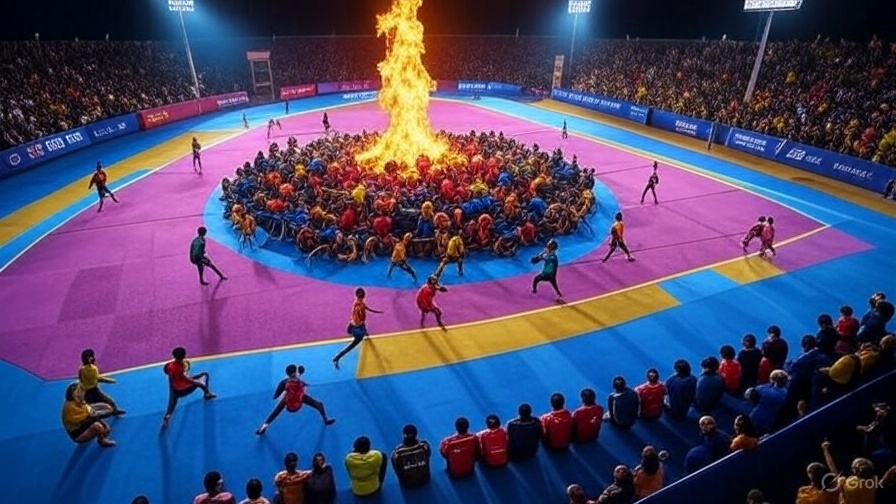1️⃣ A Traditional Indian Game
- Kabaddi has ancient origins in India, dating back thousands of years. It is believed to have been played in rural communities as a test of strength, agility, and teamwork.
- The sport is mentioned in mythology and folklore, with connections to warriors and kings, making it a cultural symbol of India’s sporting heritage.
2️⃣ Simple Rules, Accessible to All
- Kabaddi requires no expensive equipment—just a field or court and a few players.
- This makes it accessible to people in rural areas, where other sports like cricket or football might require more resources.
3️⃣ Rural Roots and Community Bonding
- Played widely in villages and schools, Kabaddi is a social game that fosters teamwork and community spirit.
- It’s also a celebration sport during festivals and fairs like Melas across India.
4️⃣ Success of Indian Kabaddi Teams
- India has dominated international Kabaddi tournaments, winning multiple Asian Games and World Cups.
- This success has boosted national pride and inspired more people to take up the sport.
5️⃣ Pro Kabaddi League (PKL) Revolution
- The launch of the Pro Kabaddi League (PKL) in 2014 transformed Kabaddi’s image.
- With glamorous broadcasts, celebrity team owners (like Abhishek Bachchan), and modern marketing, PKL made Kabaddi a prime-time spectacle, bringing the game into living rooms across India.
- PKL also introduced foreign players, adding international appeal.
6️⃣ Exciting, Fast-Paced Action
- Kabaddi is a high-intensity, physically demanding sport that combines elements of wrestling, tag, and strategy.
- The thrill of a raider trying to tag defenders and escape is gripping and keeps fans on the edge of their seats.
🎯 In Short
Kabaddi is famous in India because it is:
✅ A part of India’s cultural fabric
✅ Easy and affordable to play
✅ Rooted in rural traditions
✅ Boosted by India’s international success
✅ Glamorized by the Pro Kabaddi League
✅ Exciting to watch and play

